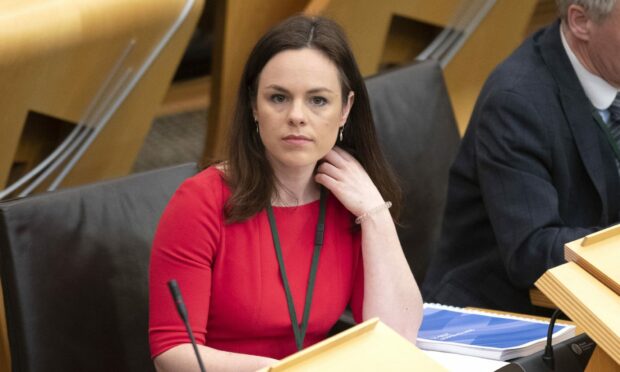A political scientist who advised Nicola Sturgeon’s government has hit back at claims he admitted “defeat” in the search for a positive economic case for independence.
Mark Blyth, originally from Dundee, said comments he made in published emails had been taken the wrong way.
It followed the release of correspondence from discussions with members of a national strategy committee, set up by finance secretary Kate Forbes.
My email was a request for data. It was not an admission of defeat.
– Mark Blyth
One exchange from March last year includes his request to chief economist Gary Gillespie for help.
Prof Blyth asks: “Pardon the interruption, I wonder if you can help me figure something out?
“Since David McWilliams made me into the reluctant poster child of Scottish nationalism I’ve been a bit stumped.
“I’ve been trying to write something on the subject but keep struggling to find the positive case that I hoped for.”
The comment, published in The Times on Wednesday, was seen by some commentators as an admission of defeat.
‘Bombshell’
Sam Taylor, of pro-UK campaign group These Islands, said the emails were a “bombshell”, claiming the economist had come out for independence “without having done any work”.
However, in a letter to The Times published on Friday, Mr Blyth wrote: “The first quote is accurate but selective. I found it hard to make the positive case for independence … in the absence of data that I could not find on the Scottish government’s website.
“My email was a request for data. It was not an admission of defeat. The email clearly shows this.”
Mr Blyth, a professor at Brown University, Rhode Islands, also clarified what had been described as evidence he’d been frozen out of discussions.
One earlier email stated: “I’ve been sensing a wee bit of persona non grata from some folks recently.”
In his follow-up letter, Mr Blyth said: “I don’t like getting up at 4am for Zoom meetings and I don’t live in Scotland.”
Despite the clarification, Mr Taylor said: “He’s been trying to write something for two years now, and nothing has emerged.
“The Scottish Government website is not brilliant, but it’s not that bad.”
Two years ago, Mr Blyth set out his views on social media after being asked what he thought of independence.
He stated: “I’m for it. Why? Because the UK growth model is unsustainable and Scotland can do better than simply subsist on inter-regional transfers.”
Prof Blyth declined to comment.
VIDEO: Is Dundee still a Yes city and will Perth say No again? We go on the road with indy activists

